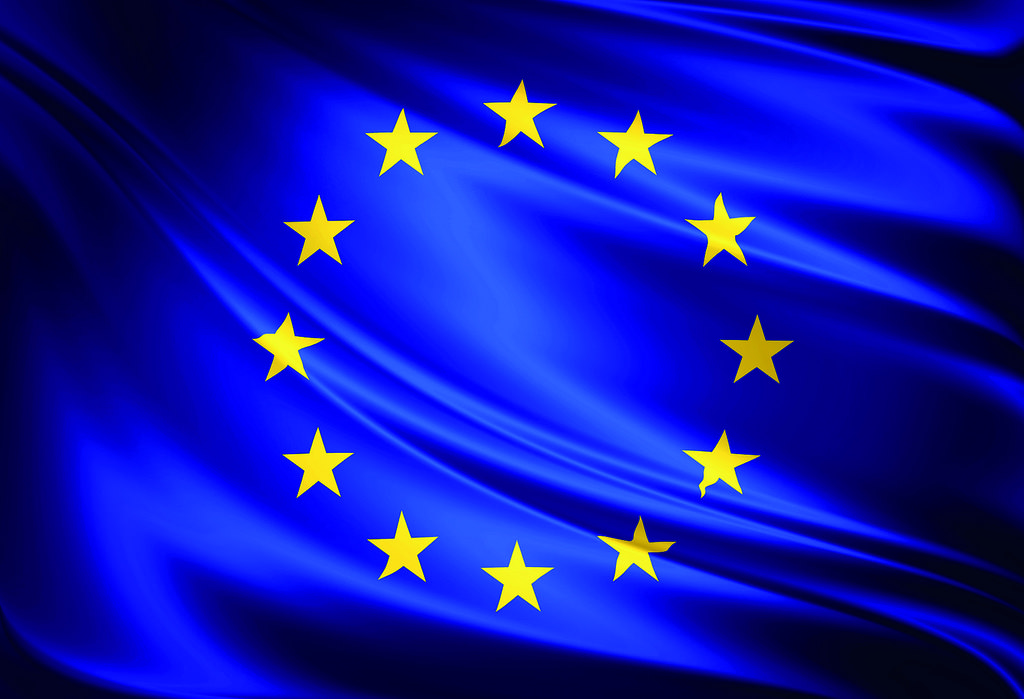
Who is or should be European? Is there a European identity? How can we conceptualize it? And above all what is the role of cultural values and civic principles in the narrative of European collective identity?
The first architects of the European Union conceived the European project as emerging from an economic co-operation to be followed by a gradual political integration. One of its early leading scholars, the neo-functionalist Ernst Bernard Haas (1997) formulated this idea into a “spill-over mechanism” to describe the hypothetic result of a progressive supranational rule making: “a convergence of beliefs, values and aspirations that would unite the peoples of the European community and generate a ‘new nationalism’”. If a “new nationalism“ was meant to unite the peoples of Europe in the belonging to a same European national identity, despite the growing cohesion of the EU’s political structure, the furthering of European integration does not seem so far to be faithful to Haas theoretical prediction. Even though the rise of a peculiar “new nationalism” is, without doubt, thriving in a new dimension of European politics and public opinion, it is not certain whether it can be conceived as a step forward in the emergence of a European collective identity. Given that the European Union started out with a relatively modest goal – that of the creation of a common market and customs union (EEC) with limited authority and six member States– the pace of the integration and enlargement process has lead to the most extensive example of inter-state co-operation in the past 500 years. From the Treaty of Rome in (1957) to the Treaty of Lisbon (2007), the economic, legal and political integration, as well as the attempt to institutionalize the principle of representative democracy by the expansion of the power of the European Parliament, as indeed grown a great deal. And yet, the breadth and depth of decision and policy making at the European level has increasingly determined the questioning of the EU’s legitimacy resulting in the so called “democratic deficit”. Howbeit for the last fifty years public opinion has provided a permissive consensus willing to leave decision making to political elites, the Danish rejection of the Treaty of Maastricht in 1992’s marked the end of this early integration chapter (Down and Wilson, 2012).
Today more than ever, after the striking outcome of the Brexit referendum, the future of the EU seems hinging on citizens’ perception and support for the European integration project. It is in the light of this uncertain days for the EU’s legitimacy that the existence and nature of a European mass identity is rightly one of the most central issues of the intellectual and public European debate. Embracing a weberian perspective Bruter stated that “without identity it seem that there can be no true, durable, legitimacy attached to a political entity, no conscious acceptance of the power of the State and of its monopolistic right to use legitimate coercion” (Bruter, 2005). In this sense, following a long and classical tradition of political theory, it can be said that the emergence of a political identity can be considered as the primary source of every political community’s legitimation. Despite the controversial interpretations dividing contemporary scholars on the conceptual meaning of political legitimacy, which will not be of our concern here, there is a general consensus on the idea that a close link exists between European political identity and its legitimacy. Distinguishing between short-term output legitimacy and one of “diffusive support” in his empirical research, Fuchs (2011) proves the existence of a positive correlation between ‘feeling European’ and the support for European integration. Embracing such a meaning, i.e. the relevance, of European political identity, we will take the conceptual its significance as the central object of our reflection. In this respect throughout the intertwinement of empirical and theoretical approaches, I will question the conceptual nature and perception of European collective identity. In highlighting the ambiguity of the latter’s twofold referents – a cultural idea of Europe and the European Union as a juridical set of institutions – I will argue that, being the European a collective identity and thus a social construction, if there is such a thing as a positive meaning of European identity it is the result of the European Institutions’ manufacturing of a European nation-state centred narrative. In so uncovering I will show how such a narrative is grounded on the political necessity to foster the emergence of a unique European demos, considered the only ground to secure the legitimacy of an increasingly supranational decision and policymaking.
Conceptual nature of European identity: controversial meaning and theoretical frameworks
European collective identity: a constructed narrative of political belonging
Assuming that something as a European identity exists, or will ever come into being, what do we mean by that? In which terms and theoretical framework can we discuss the identity of the Europeans? These kinds of questions have generated countless intellectual debates within a wide range of disciplines –philosophy, sociology, anthropology, law and political science– over the past decades and, due to the quickening of European integration and its increasingly contested legitimacy, have undergone in recent years a spectacular revival. Adopting a sociological perspective European identity can be define as a form of collective identity that, as Fligstein (2012) puts it, “refers to the idea that a group of people accept a fundamental and consequential similarity that causes them to feel solidarity amongst themselves”. In this sense, European identity is mainly conceived as social construct emerging from a more or less intentional social interaction. Then European collective identity is the social manufacturing of what Eder (2011) calls a common “narrative of borders” that on the basis of certain shared political and cultural values defines the political community and thus produces a sense of shared belonging together. Along this line Cerutti (2008) individuates two distinctive and complementary moments of sameness and distinction in the process of identity building: firstly the perception and recognition of a set of communalities around which the individuals recognise themselves as members of a group, the “mirror identity”; secondly the distinction between the characteristics of the in-group and the out- groups, a “wall identity”. Within a constructivist theoretical framework, an additional conceptual distinction can be drawn, one that, as we will see below, has important implications for the method identification are not synonymous since the former “is a social fact, whereas identifications are subjective dispositions in the mind of people” (2011). Therefore in order to avoid a positive substantialist notion of collective identity, the reification of European identity as a given, it is necessary to consider the latter not as a proper analytical category but as a “category of everyday languages that hinders rather than helps to understand what kind of collective identity might emerge in the polity of the Europeans” (Eder 2011). Indeed, there is a fundamental ambiguity embedded in the very notion of ‘European’ identity determining the impossibility to recognise a single proper referent and thus a single meaning of this peculiar collective identity. Is European identity designating the process of identification with “the idea of Europe” (Delanty,1995) as a cultural, historical and geographical construct or rather with a set of rights and universal principles embedded in the European Union’s political institutions?
The ambiguity of European identity’s referents: cultural and civic perspectives
While aiming to contribute with an empirical survey to this mainly theoretical debate Michael Bruter (2005) in his preliminary conceptualisation of European identity has provided some fundamental theoretical instruments to clarify the constitutive ambiguity of European identity’s referents. Bruter distinguishes two main conceptualisations determining the theoretical approach shaping research analysis: “top-down” and a “bottom-up”(2005). The first angle of research is characterise by an objective perspective of European identity, focusing on who should be considered European and what European identity should be, that is to say the process of top-down construction of a substantialist identity’s meaning in which the individual recognises itself by internalising the identity’s narrative. In contrast, the second approach consists in a subjective bottom-up perspective considering who feels European and what do people mean by that. In other words, it analyses the active process of individuals’ identification and the determinants of their subjective interpretation of pre- existing categories proper to the collective identity’s narrative. It is by adopting a bottom-up behavioural approach that Bruter (2005) will prove the existence and significance of two distinctive, yet correlated, components of political identities shaping individuals’ active identification process. Looking at the existing literature on the relevance of states and nations, Bruter distinguishes a first “cultural “perspective, conceiving the belonging to a particular “culturally meaningful human community such as the nation” to be defined by “a shared civilisation and heritage, cultural values, religion, ethnic or eventually ethnicity” as well as the perception that “fellow Europeans are closed to them then non Europeans” (2003). The second or “civic” perspective rather conceive political identity as the identification of citizens with a political structure, such as the State, defined as the set of institutions’ rights and rules that preside over the community’s political life. It is exactly by means of this distinction between two components of the identifier’s subjective representations of the “imagined community” (Anderson, 1991) that we will be able to distinguish the two referents of European collective identity, the idea Europe and the European Union .
“Indeed while conceiving Europe as a cultural identity presumably implies a reference to Europe as a civilisation that stretches from the Atlantic to the Urals, conceiving Europe as a civic identity would imply a reference to the European Union” (Bruter, 2005)
Elena Maggi, étudiante à la London School of Economics
Ayant obtenu un Bac L/S auprès du Lycée Classique Michelangiolo de Florence, elle a poursuivi son parcours académique à l’Université Paris1-Pantheon Sorbonne en obtenant une double licence en Philosophie et Science Politique. A présent étudiante en MSc d’Etudes Européens (idées, idéologies et identités auprès de l’Université londonienne London School of Economics), Elena Maggi envisage de poursuivre son iter dans le milieu académique et de la recherche. En particulier elle s’oriente vers des problématiques liées aux nationalismes, aux identités et à la citoyenneté européens.
Sources
Down, I. and Wilson, C. (2012). A rising generation of Europeans? Life-cycle and cohort effects on support for ‘Europe’. European Journal of Political Research, 52(4), pp.431-456
Bruter, M. (2005). Citizens of Europe?. 1st ed. Houndmills, Basingstoke, Hampshire: Palgrave Macmillan
Fuchs, D. (2011) European identity and support for European integration. In Lucarelli, S.
FLIGSTEIN, N., POLYAKOVA, A. and SANDHOLTZ, W. (2012). European Integration,
Nationalism and European Identity. JCMS: Journal of Common Market Studies, 50, pp.106- 122.
Delanty, G. (1995). Inventing Europe. 1st ed. New York: St. Martin’s Press.
Anderson, B. (1991). Imagined communities. 1st ed. London: Verso.





No Comment